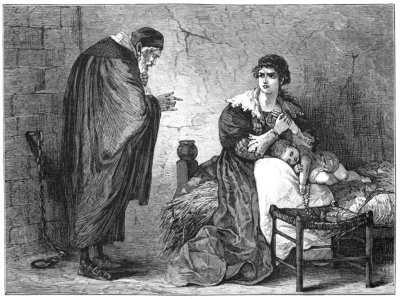Emily: Critical Lens Expert
Text: The Scarlet Letter by Nathaniel Hawthorne
Lens: Feminist
| From: UNWomen.org Real Google searches show the sexism still prevalent today. Women are still silenced. |
“A girl should be seen and not heard.” Of all the books I’ve read, not a single one says “a boy should be seen and not heard.” The Chaos Walking series by Patrick Ness takes this saying to a literal meaning -- all men and boys’ thoughts are able to be heard by everyone else, but women and girls’ thoughts are not. Women have been censored throughout literature.
Yet, a critique of The Scarlet Letter, Hester’s Revenge: The Power of Silence in the Scarlet Letter by Leland S. Person, Jr. applauds Hester’s “strategy” of silence while noting her inability to change society.
Yet, a critique of The Scarlet Letter, Hester’s Revenge: The Power of Silence in the Scarlet Letter by Leland S. Person, Jr. applauds Hester’s “strategy” of silence while noting her inability to change society.
 |
| From: wordpress.com Hester's promise not to reveal Mr. Chillingworth's real identity. |
Hester refuses to condemn her lover, she promises to never reveal the father’s name to Mr. Chillingworth, and keeps her husband’s real identity a secret. Person comments, “It is both fitting and ironic that Hester's revenge should take a ‘silent’ form: fitting because of Dimmesdale's own silence; ironic because, as feminist critics have argued, women are customarily ‘silenced’ in male-authored texts in order to be rendered powerless” (Person 470). The critic later states that all these actions punish the characters: Mr. Dimmesdale suffers alone, and Mr. Chillingworth and Mr. Dimmesdale do not know each other’s relationship to Hester. Instead of viewing Hester’s silence as a feminine trait, it is argued that she used her silence as a punishment to both Mr. Dimmesdale and Mr. Chillingworth.
Where is the line between oppressive silence and rebellious silence? Although, I do not see Hester as a feminist -- her unwillingness to break her silence is more a sign of her oppression by the two men, than of rebellion. Hester could have voiced her opinions starting with the recognition of her husband or with Mr. Dimmesdale beckoning her to release the name of Pearl’s father (Hawthorne, chapter 3), but Person states “given her circumstances, a strategic silence is the most appropriate form for Hester's exercise of power to take” (Person 471). Those circumstances are the societal norms of women.
The critic discusses Hester’s impact on her society -- which is little, “she does not change Puritan values, nor does she alter the balance of power between herself and Puritan authority” (471). Some recent books feature a strong woman protagonist, who saves the world; Hester did not save her world, in fact her actions have destroyed some of it, both men die because of her silence.
The criticism has opened my eyes to the “other” side of the feminist lens. My focus had been on the occupation of women compared to men and the sheer number of females compared to males; Hester’s silence did not appear significant until looking over this scholarly article.
Where is the line between oppressive silence and rebellious silence? Although, I do not see Hester as a feminist -- her unwillingness to break her silence is more a sign of her oppression by the two men, than of rebellion. Hester could have voiced her opinions starting with the recognition of her husband or with Mr. Dimmesdale beckoning her to release the name of Pearl’s father (Hawthorne, chapter 3), but Person states “given her circumstances, a strategic silence is the most appropriate form for Hester's exercise of power to take” (Person 471). Those circumstances are the societal norms of women.
The critic discusses Hester’s impact on her society -- which is little, “she does not change Puritan values, nor does she alter the balance of power between herself and Puritan authority” (471). Some recent books feature a strong woman protagonist, who saves the world; Hester did not save her world, in fact her actions have destroyed some of it, both men die because of her silence.
The criticism has opened my eyes to the “other” side of the feminist lens. My focus had been on the occupation of women compared to men and the sheer number of females compared to males; Hester’s silence did not appear significant until looking over this scholarly article.
| From: birminghammaple.com |
On Friday I will be participating in the Day of Silence to raise awareness of the silence of many LGBTQ people due to harassment. However, contemplating silence in a literary context, I am wondering if it is better to speak about the LGBTQ community in order to protest their harassment or hold a silent “rebellion”?
No comments:
Post a Comment